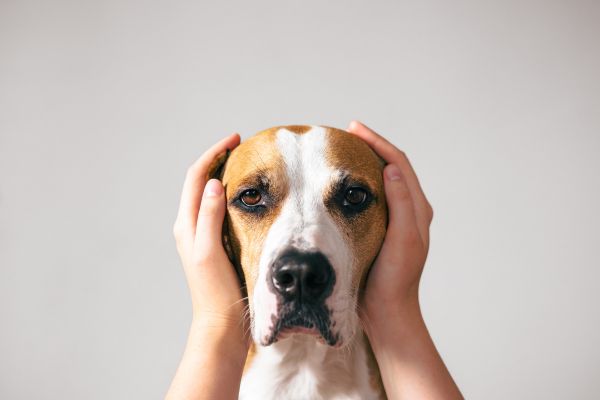Dogs are beloved companions, offering us loyalty, joy, and endless affection. However, sometimes pet owners notice an unpleasant odor coming from their furry friend’s ears. If your dog’s ears smell, it is essential to understand why this happens, what it means for your pet’s health, and how you can address it effectively.
🐾 Take Better Care of Your Pet’s Health Today!
If you’ve noticed dogs ears smell unusual or your furry friend needs safer and more effective healthcare solutions, trust PUAINTA – a leader in pet pharmaceutical innovation. 💊🌿
📧 Email: [email protected]
📍 US Headquarters: 134 Nebraska, Memphis, TN 38106
🌱 With eco-friendly, veterinary-grade products and a passionate team of experts, PUAINTA ensures your pets enjoy a healthier, happier life. 🐕🐾
Recognizing the Significance of a Dog’s Ear Odor
A mild, natural scent from a dog’s ears is normal. But when the odor becomes strong or foul, it could signal an underlying issue. Dogs’ ears are sensitive and prone to developing problems because of their unique structure. The long, L-shaped ear canal in many breeds creates a warm and moist environment, making it easy for bacteria and yeast to thrive.
Common Reasons Why Dogs’ Ears Smell
One of the most common causes of a strong odor in your dog’s ears is an ear infection. Bacterial and yeast infections often lead to a pungent, sometimes sweet or musty smell. Ear mites can also contribute, especially in puppies, leaving a strong odor along with black or brown debris in the ears. Allergies, both food-related and environmental, are another factor that can cause inflammation and unpleasant smells.
Moisture trapped in the ear after swimming or bathing creates the perfect conditions for bacterial growth. This is often referred to as “swimmer’s ear” in dogs. Additionally, the buildup of wax, dirt, or foreign objects in the ear canal can result in foul odors if not cleaned properly.
When Should You Be Concerned?
If your dog’s ears smell mildly but there are no other symptoms, routine cleaning may be enough to resolve the issue. However, you should seek veterinary attention if the smell is strong and persistent, especially if accompanied by redness, swelling, discharge, head shaking, scratching at the ears, or visible discomfort. These signs could indicate a more serious infection or even a chronic condition needing medical treatment.
Preventing Smelly Ears in Dogs
Prevention plays a key role in keeping your dog’s ears healthy and odor-free. Regular ear checks can help you spot early signs of trouble before they worsen. Cleaning your dog’s ears with a vet-recommended solution helps remove wax and debris that can cause odors. It’s also important to keep ears dry after any water exposure, as moisture is a leading contributor to infections.
For dogs with long or floppy ears, extra vigilance is needed. These breeds are more susceptible to ear problems because their ear flaps reduce air circulation and trap moisture. Monitoring for allergies and addressing them promptly can also minimize ear-related issues.
How Veterinarians Diagnose and Treat Ear Odor
When you visit a veterinarian because your dog’s ears smell, they will perform a thorough examination to determine the cause. They may use an otoscope to look deep into the ear canal and take samples to identify whether bacteria, yeast, or mites are present. Treatment typically involves cleaning the ears professionally and prescribing medicated drops or ointments to clear up infections.
In severe cases, oral medications may be necessary to address inflammation and infection systemically. It is crucial to follow the vet’s instructions carefully, as incomplete treatment can lead to recurring issues and chronic ear problems.
The Link Between Diet, Allergies, and Ear Health
Many dog owners are surprised to learn that what their pet eats can influence ear health. Food allergies or sensitivities often manifest in the ears, leading to chronic inflammation and odors. If your dog has recurring ear issues, your veterinarian might recommend trying a hypoallergenic diet to see if food is a contributing factor.
Environmental allergens like pollen, dust, or mold can also cause similar reactions. Identifying and managing these allergens with your vet’s help can significantly improve your dog’s overall well-being and reduce ear-related problems.
Keeping Your Dog Comfortable and Healthy
Caring for your dog’s ears is an essential part of responsible pet ownership. By staying attentive to any changes and maintaining a regular ear care routine, you can help prevent unpleasant odors and more serious health issues. Remember, if your dog’s ears smell unusually strong or if there are other signs of discomfort, it’s always best to consult with a veterinarian promptly.
Conclusion
A noticeable smell from your dog’s ears should never be ignored. While minor odors may result from natural wax buildup, strong or foul smells often indicate infections, allergies, or other underlying issues. Taking proactive steps with regular cleaning, monitoring for allergies, and seeking veterinary care when necessary can keep your dog’s ears healthy and fresh. Your furry friend relies on you to notice when something isn’t right, and addressing it early ensures their comfort and happiness.



